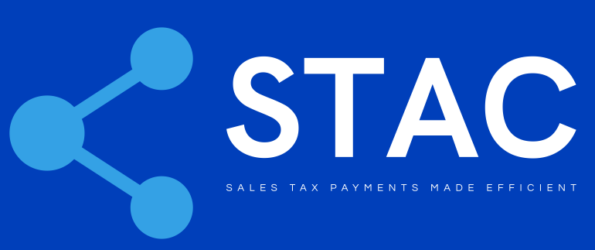Sales Tax Collection Myths and Realities
1. Credit card companies do not know the amount of sales tax to remit.
The capability to capture the exact tax amount of each transaction has existed since the advent of Commercial, Corporate and Purchasing cards from all of the different Card Brands for over 15 years. In fact, approximately 21% of all transactions are some form of Commercial cards that report sales tax to the processor for proper interchange qualification. If the people responsible for tax remittance talk to their treasury department they would find that major retailers save a significant amount of money a year by providing their processors and card issuers the tax amount of any transaction using one of these card types. Sending the exact sales tax amount with each transaction (along with a few other data elements) ensures that the transaction will comply with Card Brand interchange requirements so that the merchant pays the most beneficial Discount Rate. If the merchant fails to send the tax amount the transaction will downgrade and the Merchant will have to pay as much as 50 additional basis points.
2. Credit card companies do not know the taxing jurisdiction.
Credit card companies do not need to know the taxing jurisdiction because when a Merchant’s POS system is initially setup it is configured to know the Merchant’s sales tax nexus and as a result it will recognize to which proper tax table it refer for specific transactions. Companies like Avalara and Vertex provide these tax tables to POS developers.
3. Which party or parties would remit the tax?
Issuers and Merchant Banks WOULD NOT be involved. Only the institution providing the settlement services (typically the processor) would be the one to handle the remittance. In some cases gateways can rent their own Bank Identification Number (BIN) or Interbank Card Association (ICA) numbers. In almost all cases these gateways contract with the entity they rented the BIN/ICA from to handle their settlement needs. Some states may require that the processors remit the collected sales tax to an independent aggregator. This aggregator would be responsible for sending the collected funds to the state coffers and act as a single point of reconciliation for merchants, processors and the state treasury.
4. How would the system work with debit card purchases?
No different than a credit card since the transaction normally takes the same path to the processor for authorization on the debit network rails. Some extremely large merchants have the ability to authorize debit transactions through Interbank debit networks such as Star or Presto. Regardless of the authorization path for debit cards the merchant still receives their money through the existing settlement process performed by the processors.
5. Which party would remit the tax on cash transactions?
The merchant would remit sales taxes on cash transactions using the existing filing process.
6. How would split tender transactions be handled?
Split transactions would be handled no differently than they are handled by the POS today. The POS calculates the tax on each transaction and authorizes that amount. Here are the use cases:
– Three friends have lunch and the waitress presents one check. Each diner provides their own card, the waitress pushes a key on the POS to tell it to split the ticket (by line item or percentage) and the POS calculates the correct amount of tax for each separate transaction.
– You present a gift and credit card to purchase a birthday present for your mother. The clerk will validate the amount available on the gift card (let’s say $100) and the POS will charge for that entire amount. The remaining balance and the sales tax will be put on the credit card.
7. How will the system treat returns of merchandise after the tax has been remitted?
Daily sales tax remittance to the state by Processors is reduced by any returns made that day.
8. How will the system treat post-remission chargebacks or disputed charges?
Daily sales tax remittance to the state by Processors is reduced by any chargebacks or disputed charges received that day.
9. Would the system be able to recognize sales of items that are exempt from tax, or sales of intangible items such as gift cards, or tips at restaurants, etc.?
The capability to calculate the sales tax on individual line items is built into the POS. Companies like Vertex and Avalara provide these tax tables to POS companies as a service.
10. Reconciliation will be unduly burdensome and complex.
The overall sales tax system involves two main components – the money collection part and the reporting part. The STAC methodology is applied only to the money collection part as cash is collected by the states in real time through the bifurcation process. However, reporting by merchants is not affected. By applying the STAC methodology, states will get the best of both worlds – the benefits of accelerated cash flow and improved compliance with no change to the reporting documentation processes in place.
11. Which party is responsible for the accuracy of the tax remitted?
The Merchant.
12. Will the retailer be held liable if the credit card company or processor fails to remit the proper amount of tax?
The current liability structure does not change; however, automation of the remittance process will reduce the risk of human error.
13. Which party or parties will be subject to audit by governments?
The Merchant.
14. Who pays for the system?
STAC methodology requires no proprietary hardware or software so there is no system to purchase. Application of the patented STAC methodology by Processors to existing systems would require a license, which would include a small royalty.
15. Who would pay the interchange fee on the sales tax?
Merchants have been paying interchange on sales tax since the beginning of the industry.
16. What measures will be in place to assure consumer privacy, and to secure credit card and other personal consumer information?
Under PCI Security Guidelines it is not possible for a merchant or processor to pass on a card number to anyone other than the issuing bank. No Personally Identifiable Information (PII) can or would be collected.
17. Real-time sales tax collection does not appear to advance any sound tax policy.
It is quite sound tax policy to address a problem that is costing states, localities, and taxpayers billions of dollars.
Current sales tax systems are not working. They rely on high levels of voluntary compliance and are antiquated and costly to administer. They impose staggering and unnecessary burdens on businesses and they are structured and administered in a way that essentially encourages small and midsized retail businesses to become delinquent. Worst of all, sales tax systems lead directly to the loss of billions in sales tax revenue that states and local governments desperately need due to noncompliance, delinquencies and slow remittance of sales tax revenue by some merchants who are using the State’s money as an interest free loan and to supplement their cash flow position.

